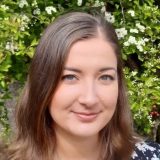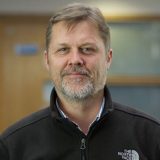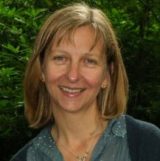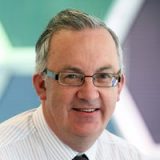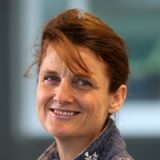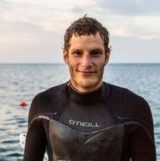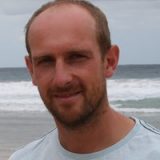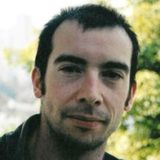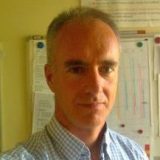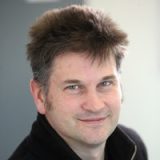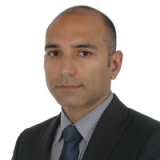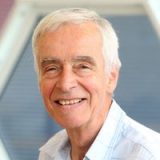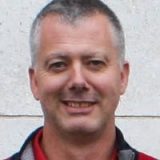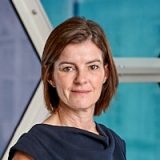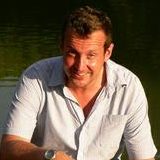Nina is an evolutionary biologist with research interests focused on the evolutionary ecology of sex. She has worked extensively on various aspects of sexual selection and sexual conflict, in particular on the role of selfish genetic elements in reproductive biology.
Gabriel Yvon-Durocher
Gabriel researches the effects of environmental change on the structure and functioning of ecosystems (which comprise groups of species, their interactions with one another and with the physical and chemical environment in which they exist). His work spans multiple levels of biological organisation, from sub-cellular biochemistry to the dynamics of ecosystems, and searches for similarities across aquatic and terrestrial systems. The ultimate goal of his work is to develop a predictive ‘tool box’ to forecast how ecosystems will change in a world increasingly dominated by humans and the oceans.
Michiel vos
Michiel combines approaches from microbiology, evolutionary ecology and population genomics to study bacterial evolution, focusing on horizontal gene transfer, sociomicrobiology and pathogens in the environment. Key projects include exploring the ecological drivers of antimicrobial resistance and virulence in aquatic bacteria.
Rod Wilson
Rod is a comparative physiologist. He aims to provide a more holistic understanding of homeostasis in aquatic animals, both fish and invertebrates, freshwater and marine. This includes studies of how anthropogenic and natural environmental changes impact upon physiology and behaviour in the wild, and how to use physiology to help improve the sustainability of aquaculture (including animal growth efficiency and health, pathogen/parasite resistance, and farm effluent output). He also studies the reverse process: how physiological processes in aquatic animals can influence the regional and global environment in freshwater and the oceans.
Jamie stevens
Jamie is an evolutionary biologist with interests in molecular ecology, population genetics and evolution. Two key strands are fish population genetics, and parasite systematics and evolution. He focuses on questions in the field of population/conservation genetics, with particular emphasis on applying knowledge of population genetic process to the management and conservation of Atlantic salmon and trout, and a variety of marine organisms, including sea fans and lobster, with the aim of understanding gene flow and connectivity in relation to the design and designation of marine protected areas.
Eduarda santos
Eduarda is an environmental biologist investigating reproductive development and function and the susceptibility of these processes to disruption by environmental stressors. Her research focuses on fish and has ranged from investigating the endocrine control of reproduction to addressing the population level effects of chemical exposure for wild fish, using systems biology strategies.
Aimee Murray
Aimee’s research area is antimicrobial resistance in the environment, particularly due to anthropogenic impacts in wastewater and receiving environments. This includes evolution and ecology of antimicrobial resistance, direct selection at low concentrations and co-selection by other antimicrobials and non-antimicrobial compounds, environmental risk assessment, and developing and validating the novel ‘SELECT’ method for rapid determination of selective concentrations of antibiotics and environmental surveillance of antimicrobial resistance. She has a long-standing collaboration with AstraZeneca and engaging with industry and policy makers.
chris lowe
Chris is an aquatic Microbial Ecologist (mainly marine). He looks particularly at algal bloom impacts on shellfisheries (e.g. mussel farms) and reservoirs. He is an expert in Cyanobacteria, working with Canadian partners. His focus is on ecological implications rather than applied science. He has close ties with Plymouth Marine Laboratories, where single cell culture takes place and linked to genomics.
will gaze
Will research is in antimicrobial resistance in farmed and natural environments, including major elements of environmental sampling and wide-ranging analytical methodologies. This includes AMR evolution in the environment, using in situ and in vivo experiments, landscape scale dissemination of AMR and human exposure and transmission studies. Projects are divided into three main themes: ecology, evolution and public health perspectives. These map onto those identified in successive WHO, EU and UK AMR action plans facilitating interdisciplinary research approaches and joined up thinking.
tamara galloway
Tamara studies the biological effects of environmental pollutants in human and wildlife populations. Using a systems wide approach to address how pollutants damage ecosystems, how animals evolve tolerance and resistance in polluted environments and what makes some animals more sensitive than others. She has worked with funders to develop a predictive capability of the likely outcome for natural populations of pollutants, such as nanomaterials, micro and nanoplastics.
Elizabeth chadwick
Freshwater aquatic systems, particularly the Eurasian otter and British amphibians; spatial ecology; contaminants; populations; pathology; Otter Project
Hefin Jones
Hefin’s research examines trophic interactions in terrestrial and aquatic environments (and the effect of climate change on these); soil biodiversity; population and community ecology.
Isabelle Durance
Isabelle’s specialist research covers freshwater ecosystems; biodiversity; ecosystem services; climate change; environmental change, landscape ecology and catchment science.
Jo Cable
Jo’s research covers experimental parasitology; host-parasite dynamics; fish parasites; ecosystem impacts of invasive species; water-borne human pathogens and zoonotic infections; imaging; molecular ecology; cell biology and fieldwork with aforementioned research areas.
Robert ellis
Rob’s research focuses on adaptation and acclimation in animals exposed to environmental change. He’s interested how the mechanistic understanding of animal physiology can be used to improve the productivity and sustainability of aquaculture in a wide range of production settings, and how aquaculture can be used to help secure future marine ecosystems in the face of climate change impacts.
Mark Cuthbert
Mark’s research groundwater recharge; surface water-groundwater interactions; groundwater flow and transport processes; climate-groundwater interactions and paleohydrology.
Pablo Ouro Barba
Pablo’s main area of expertise relates to the computational modelling in offshore renewable energy (tidal stream turbines and wind turbine farms); turbulence in environmental flows and hydraulics; or multi-phase flows: Eulerian-Eulerian (free-surface) and Eulerian-Lagrangian (sediments). He also works on the development of river turbine arrays for developing countries.
Angus Buckling
Angus is an experimental biologist interested in links between water and health. He works on evolutionary ecology of microbes, primarily by studying evolution in real time in controlled environments (experimental evolution).
Ross Brown
Ross’ research focuses on refining environmental risk assessment approaches to safeguard aquatic ecosystems from pollution and to facilitate the sustainable development of aquaculture.
Peter Kille
Peter’s primary research focuses on omics – genomics, proteomics, metabolomics and heavy metals in biological systems.
His research includes diatom assay, reservoir ecology and cyanobacteria population structure, nutrients , eDNA and the ecology of sand filters and chemical breakdown.
Reza Ahmadian
Reza’s research includes flood risk management including: flash flood and hazard, Sustainable Flood Management, evacuation planning,
water quality and sediment transport modelling. His work includes modelling bacteria, viruses, nutrients and emerging pollutants, monitoring for bathing water and aquaculture sites, warning and autonomous systems, water security.
Peter Randerson
Peter’s research covers pollutant removal and nutrient recovery from effluents and waste water (biofiltration), using constructed wetland systems and the production of biomass crops.
Rupert Perkins
Rupert is a specialist researchers in algal photophysiology and productivity; taste and odour compounds in reservoirs; catchment management; variable chlorophyll floursecence and sediment/water column biogeochemistry.
Siân Griffiths
Siân’s research focuses on the behavioural ecology and the evolution of fish schooling; consequences of climate change for fish behaviour and river ecology; ecosystem quality and the distribution of fish in rivers.
Steve Ormerod
With a research focus on global change effects on freshwater organisms and ecosystems; river biodiversity and ecosystem services Steve is a leading specialist in riverine and wetland bird ecology.
Yacine Rezgui
Yacine specialises in modelling, data analytics, informatics (semantics), knowledge management; catchment and urban water management; resilience of the built environment to natural disasters; smart cities.
Martin Genner
Martin researches spatial and temporal patterns of biological diversity, primarily in aquatic environments with a focus on European marine and African freshwater fish. His current projects include ‘Characterising the biodiversity of freshwater fishes of Africa using environmental DNA metabarcoding: A case study within the Kilombero river system of Tanzania’ and ‘SeaDNA – Assessing marine biodiversity and structure using environmental DNA: from groundtruthing to ecosystem structuring’.
Jannis Wenk
Jannis’ research investigates both physical and chemical water treatment, including developing more efficient technologies for gas transfer, investigate novel types of process combinations in engineered and nature-oriented treatment scenarios, such as constructed wetlands, and to further explore oxidative water treatment for example, ozonation, UV-light and radical induced processes as an important step to remove aqueous contaminants, pathogens and avoid spread of antimicrobial resistance. Current research in his group also investigates fate of microplastics in constructed wetland and separation technologies for microplastics.
Barbara Kasprzyk-Hordern
Barbara’s research focuses on environmental pollution, environmental epidemiology, water quality/water treatment and analytical chemistry. Barbara is particularly interested in water pollution and novel technologies used to decrease contamination of water. Recent interests are related to urban water and human epidemiology.
Catherine Wilson
Catherine’s research focuses on environmental hydraulics, including both natural flood management methods and traditional hard engineering methods. She also looks at fish swimming hydrodynamics and sediment transport dynamics, including hydropower turbines.
Andrew Weightman
Andrew’s research includes work on microbiomes, microbes and informatics.







